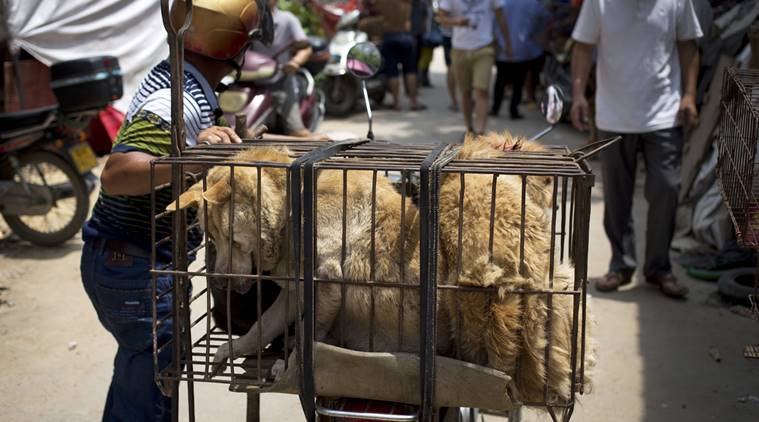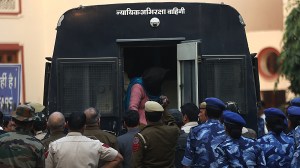Stay updated with the latest - Click here to follow us on Instagram
Animal cruelty cases don’t compel offenders to even come to court, suggests BSPCA data
Between 2011 and 2016, BSPCA has registered over 20,000 cases of animal cruelty at various police stations
 (AP Photo/Andy Wong)
(AP Photo/Andy Wong)
Animal cruelty cases, which are both bailable and account for scanty fines, don’t compel offenders to even come to court, data suggests. Between 2011 and 2016, the Bombay Society for the Prevention of Cruelty to Animals (BSPCA) has registered over 20,000 cases of animal cruelty at various police stations.
However, in 13,089 of these cases, the accused did not appear in court, but still paid the fines. “The fines for animal cruelty are too meager for a person to not hesitate to harm a domestic animal again,” said Lt. Col (Dr) J C Khanna, BSPCA Secretary. BSPCA, is probably the largest complainant in animal cruelty cases in the city.
Watch what else is in the news
The Prevention of Cruelty Against Animals (PCA) Act 1960 covers all forms of physical torture or abuse against animals. Any such act is punishable for the first time with a fine of Rs 10 which may extend up to Rs 50. The fine for the second offence ranges between Rs 25 and Rs 100.
Under the Widlife Act, cruelty to animals like peacocks, which is a non-cognisable and non-compoundable offence, the maximum punishment as per Section 51 of the Wildlife Protection Act, is six years, or a fine of Rs 25,000, or both. “In some case the offender is asked by the government to pay Rs 500 but that is the maximum. When we register these cases we try to add as many charges against the offender to increase the fines but the fines are still too little to have any impact,” Khanna added.
According to data, the number of animal cruelty cases under PCA rose for three years between 2011-13 before showing a decline in the next two years. Khanna attributed this dip to the decision of putting ban on sale or use of a number of animals like bullocks, which were used to transport ice and sugarcane in the city. In 2011, the court cases reported were 3,333, the subsequent years recorded 3,379 and 3,974 cases.
In 2014, however, a slump in such cases was noticed and the number stood at 3,083 cases, a further dip to 2,966 was observed in 2015. Interestingly, the number of animal cruelty cases again rose in 2016 with 3,357 cases that went to court.
In all of the 20,092 cases registered by BSCPA that went to any Metropolitan magistrate in Mumbai, only 7,003 cases saw convictions.
“The animal cruelty cases that go to trial only last a maximum of two hearing, depending if the offender doesn’t come to court on the first hearing. These cases are very quickly dealt with, where the judge would only ask ‘Gunaah kabool hai?’ (Do you admit the crime?) and the offender because he has appeared in court says ‘kabool’ (admit) and pays the fine and the matter is over,” Khanna said.
The data further indicates that cattle — cows, bullocks, goats, etc — are most cruelly treated. A steady rise in cruelty cases against cattle was observed between 2011-13, with 1,842, 2,189 and 2,957 trials reported respectively.
In 2014 and 2015, an average of 2,340 cases went to court. While, the previous year saw 2,862 cases registered for cruelty against cattle. Over Rs 40 lakh has been collected in fines, of which Rs 30 lakh was with BSPCA to pay their employees and treat the injured animals, while the remaining Rs 10 lakh went to the state’s treasury.







